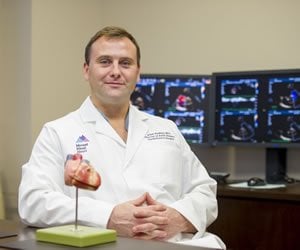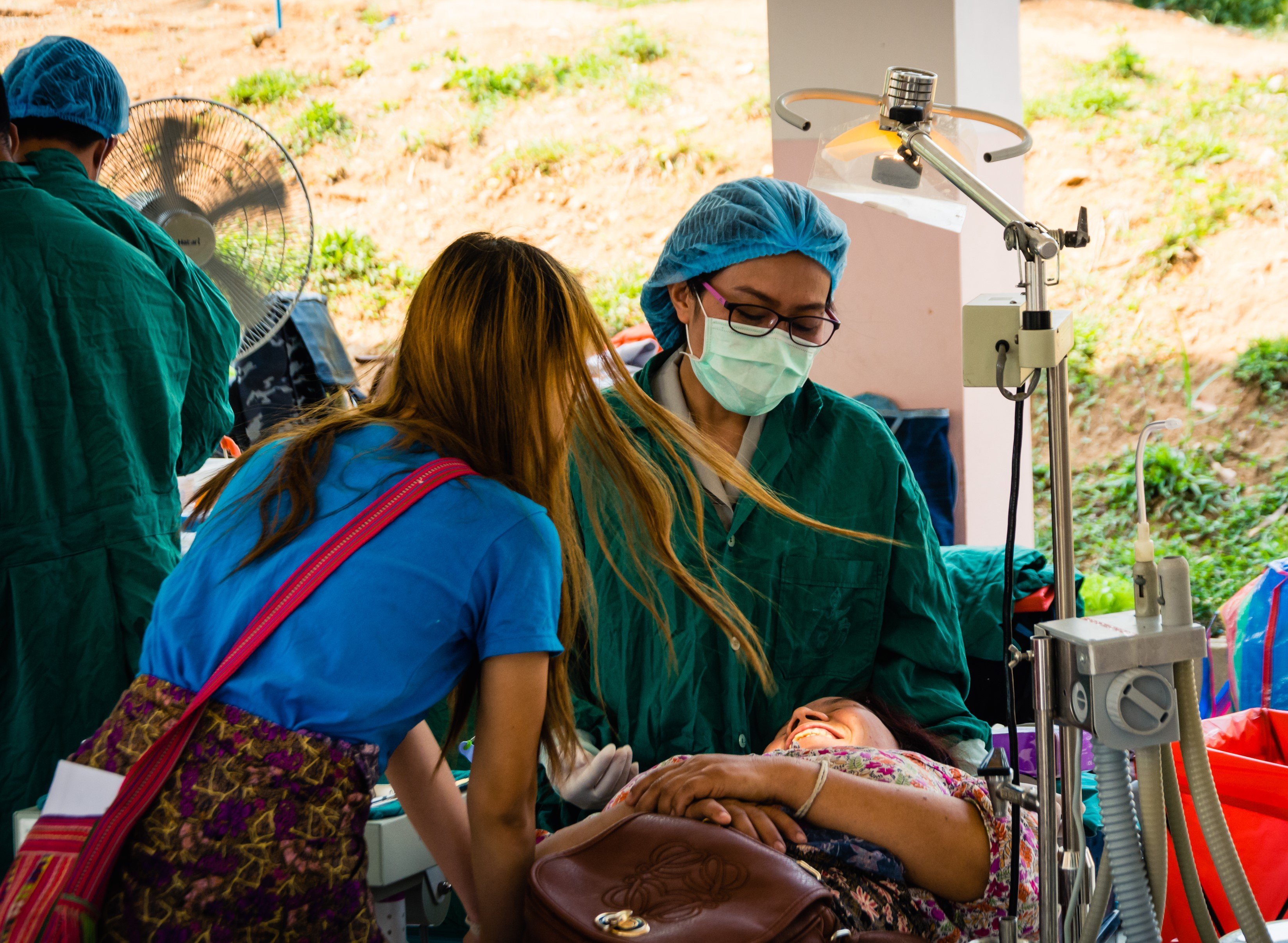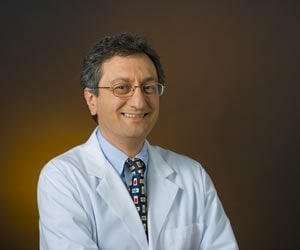Memorial Day and Mother’s Day are May’s official holidays, but for millions, graduation day is May’s biggest celebration—as momentous as a wedding or birth. Graduation creates memories of a proud family gathering, celebrations with classmates, and the inspiring message from a charismatic commencement speaker.
I’ve had my share of graduations—high school, college at Cornell University, medical school at GW, grad school at Hopkins. Association of American Medical Colleges (AAMC) President Jordan Cohen addressed my medical school graduation. I had no idea who he was. A decade later, I went to work for him, and the AAMC has been my professional home ever since.
feature article
Ensuring Fairness: An Interview with the Director of MCAT Security and Compliance
Updated March 3, 2022. The article was updated to correct minor grammatical errors and formatting. … Read more
Eight Tips on Money Management for Entering Medical Students
You’ve already done the hard part, you’ve made it into medical school! But how are you going to pay for it? Understanding how to manage your money is critical for financial success. Follow these eight basic tips to start your medical career off right.
5 Reasons Intern Year is Better Than Medical School
I had a certain level of (I thought well-justified) terror anticipating the start of intern year. No longer able to hide behind the protective “I’m just the medical student” blockade, I was worried about not being able to live up to the burden and the privilege of being someone’s doctor. Third year was rough and I could only imagine the horrors that awaited me as an intern. Yes, it has been a difficult year, filled with long hours and intense days. However, what I found was that contrary to my fears, intern year has been so much better than medical school. If you recently walked across the stage and accept your diploma, congratulations! Here’s what you have to look forward to:
Lost in Translation
Republished with permission from here. In the rest of the house, the noise of the party … Read more
Writing Your Personal Statement
Writing a personal statement for professional school can be a daunting experience. This article will offer key tips on drafting a personal statement that displays your strengths and uniqueness.
How to Start?
Start early – writing your personal statement will require much thought and reflection. Schedule time to work on your statement weekly – do not wait until the last minute to begin drafting.
Just start – The writing process will require multiple drafts. Begin by writing whatever comes to mind as it pertains to your application process. As you continue to write, your ideas will become more focused and you will be able to add and delete what you do and do not want to use.
5 Mistakes I Made in Med School (So You Don’t Have To)
It has been nearly a year now since I walked across the stage at Carnegie Hall to accept my diploma. Now approaching the end of internship – let’s say that again, one more time, with appropriate emphasis: the end of internship – I can look back with a little more objectivity on my four years of medical training. As with everything else, hindsight is mostly 20/20 and, while there are a lot of things I did right in medical school, I now realize I made some mistakes, or, if they weren’t outright blunders, at least things I would do differently if I had to do it again. Let that these not be your mistakes:
Is Summer MCAT Prep Right for Me?
Preparing for the MCAT during the summer months is a choice that many pre-medical students make – and for good reason. Summer prep provides several advantages over simultaneously juggling coursework with MCAT review during the school year. However, students should also understand that summer prep can be more difficult in certain situations. Below are four questions to consider when debating whether or not to prepare for the MCAT over the summer:
1. Are you able to effectively multitask and prioritize?
One significant difference between preparing for the MCAT during the school year versus preparing for the MCAT during the summer is that summer prep often allows you to focus solely on MCAT review. Studying for the MCAT during the academic year – while also taking courses and participating in various extracurricular activities – requires well developed time management and prioritization skills.
If you currently struggle to manage multiple commitments during the school year (as is common for many pre-medical students who are stretched quite thin), then you may benefit from preparing for the MCAT during the summer months. Free of distractions, you will be better able to truly focus on this crucial exam.
How We Found Our Voice As Hospitalists
Approximately a year ago, our CEO hired a healthcare performance company to evaluate our hospitalist group’s performance and make recommendations as to how to cut costs and improve efficiency. What soon followed was a Request for Proposal (RFP) which was released in the summer of 2014. Our CEO was searching for a third-party company to take over management of our hospitalists and save our non-profit corporation the cost of employing and managing the hospitalists. Needless to say, this was more than upsetting for the 37 employed hospitalists. Were our jobs secure? Were we going to be fired and have to apply to be hired by this third-party corporation if we wanted to stay in this community?
Up in Smoke: The Challenges of Physician Burnout
The days are long, the nights short – unless you’re on call or night float, in which case that is reversed. Regardless of where you are in your training, whether in medical school or already out of residency, there will be days when it all just feels like too much. Too much work, too much emotional energy expended, too much illness. Too many petty tasks or meaningless phone calls or purposeless turf wars. Hopefully, those times will be few and far between, buoyed by the days where you make a tricky diagnosis, have an appreciative patient, or just get out of the hospital with daylight left and go for a run. However, for a significant number of physicians, these despondent days stack one atop the next, stretching into weeks where they feel to exhausted to invest energy in their patients, let alone themselves. These individuals are likely suffering from burnout.
20 Questions: Allan S. Stewart, MD: Cardiothoracic Surgery
Thoracic surgeon Dr. Allan S. Stewart is director of the aortic surgery program and co-director of the valve repair center at Mount Sinai Health System. Stewart received his bachelor’s degree in biology magna cum laude from St. Peters College (1991), and his MD from University of Medicine & Dentistry of New Jersey (1995). Dr. Stewart completed an internship and residency in general surgery at Hospital of the University of Pennsylvania. He completed a postdoctoral research fellowship in the division of cardiothoracic surgery/department of physiology at University of Pennsylvania School of Medicine, a chief residency in general surgery at Hospital of the University of Pennsylvania, and a residency in cardiothoracic surgery at Columbia University Medical Center. Lastly, he completed a fellowship in ventricular assistance at Columbia University Medical Center. Dr. Stewart is currently associate professor of cardiothoracic surgery at Icahn School of Medicine, Mount Sinai Health System.
Tips from the Trenches: 5 Tips for Surviving Intern Year
Dear Incoming Interns,
Congratulations on matching and reaching the end of medical school! I am sure you are very excited to be graduating, and we interns are equally excited for you as it means we are about ready to say “so long” to our intern year. (Right now, I have 62 clinical days left – but who’s counting?) Intern year is one steep learning curve after another. Just about the time you figure out a particular service, you switch to the next. Over time, however, themes emerge, the transitions become easier, and the mass of random lab values, medications, signs and symptoms, slowly gel into cohesive patient narratives. Below is some of my own hard-earned advice from this year, some practical, some personal.
Helping Hands: A Conversation with Paul Rockar, Jr., DPT, MS
The first thing you notice about Paul Rockar, Jr., PT, DPT, MS, is his energy. Focused and friendly, he speaks enthusiastically about his chosen profession, using his hands to punctuate the points he’s making.
Those hands have not only helped patients function more comfortably for the past 30 years, but also have written textbooks, taught classes, and helped shape policy as President of the American Physical Therapy Association. So his favorite aspect of his career as a physical therapist comes as no surprise: “It’s not a ‘stand back and watch profession’, its a hands on profession,” he told Student Doctor Network at the 2014 UC Davis Pre-Health Conference last fall.
How to Use Study Abroad to Set Your Medical School Application Apart
All in all, studying abroad provides students with invaluable personal growth, which will translate to … Read more
10 College Classes Pre-Meds Should Take
College as a pre-medical student can be challenging; unlike many other programs, pre-medical programs are … Read more
Picking the Right Medical School Program
There’s a popular phrase, “If you’ve seen one medical school… you’ve seen one medical school.” Every school is completely different, so it’s a good idea to thoroughly research what programs would be best for you before you start the application process.
What are you looking for?

When you’re deciding which medical schools to apply to, consider some of the same factors you weighed when applying to college: Are you looking for a public or private university? Do you want to attend school in your home state or out-of-state? You may also narrow your choices by considering the specialties offered or even which clubs and organizations are available to med students.
20 Questions: Antoine Sayegh, MD: Medical Oncology/Hematology
Dr. Antoine Sayegh is a hematologist and medical oncologist practicing in Sacramento and Roseville, California. … Read more
The Med Student’s Guide to Analytics in Healthcare
As a future physician, you’re constantly learning. You spend years studying, memorizing, reciting, hypothesizing, shadowing, … Read more
Letter-By-Letter, Word-By-Word
Republished with permission from here. The first day of my medicine rotation, I proudly put on … Read more




















